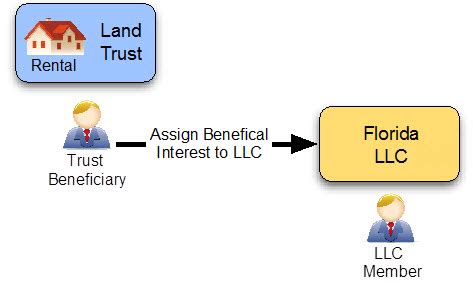Secure Your Investment: The Land Trust Method
Investing in land offers significant potential for long-term growth and wealth building, but it also carries inherent risks. Protecting your investment and ensuring a smooth transaction is paramount. One powerful tool often used to mitigate these risks is the land trust. This comprehensive guide explores the land trust method, its benefits, drawbacks, and how it can secure your investment.
What is a Land Trust?
A land trust is a legal arrangement where property ownership is transferred to a trustee, who manages the land according to the instructions outlined in a trust agreement. The beneficiary of the trust retains beneficial ownership, meaning they retain the right to use and enjoy the property's benefits, such as collecting rental income or selling the land. The trustee acts as a legal intermediary, shielding the beneficiary's identity from public record.
This separation of legal and beneficial ownership is the core strength of a land trust. It offers several key advantages for land investors.
Benefits of Using a Land Trust
Enhanced Privacy: This is perhaps the most significant benefit. The beneficiary's name doesn't appear on public land records, protecting their identity from unwanted solicitations, potential legal issues, or even harassment.
Asset Protection: A land trust can provide a layer of protection against lawsuits and creditors. Depending on the specifics of the trust agreement and state laws, the land held in trust may be shielded from claims against the beneficiary's personal assets. This is particularly important for high-net-worth individuals or those involved in businesses with potential liabilities.
Simplified Estate Planning: Land trusts can streamline the transfer of land ownership after death. The trust agreement dictates how the land will be distributed, avoiding probate and potentially reducing legal fees and delays.
Flexibility and Control: The trust agreement allows for a high degree of flexibility. The beneficiary can specify how the trustee manages the land, setting guidelines for use, sale, or leasing.
Tax Advantages (Potential): While not a guaranteed benefit and dependent on specific circumstances and jurisdictions, certain tax advantages might be available through strategic land trust structuring. This should always be discussed with a tax professional.
How Does a Land Trust Work?
The process typically involves:
- Establishing the Trust: A trust agreement is created, outlining the terms of the trust, including the beneficiary's rights and responsibilities, and the trustee's duties.
- Transferring Ownership: The legal title to the land is transferred to the trustee.
- Management and Administration: The trustee manages the property according to the terms of the trust agreement.
- Beneficiary Control: The beneficiary retains control over the land's use and disposition, often through instructions given to the trustee.
- Termination: The trust can be terminated according to the terms specified in the agreement.
Drawbacks of Using a Land Trust
While beneficial, land trusts are not without potential drawbacks:
- Cost: Establishing and maintaining a land trust involves legal fees and other administrative costs.
- Complexity: Land trusts are complex legal arrangements, requiring careful planning and legal expertise to establish and manage effectively.
- Potential for Trustee Misconduct: While rare, there's always a risk of trustee misconduct or mismanagement. Choosing a reputable and trustworthy trustee is crucial.
- Lack of Transparency: The lack of public disclosure of beneficial ownership might be a disadvantage in certain situations, such as obtaining financing.
Who Should Use a Land Trust?
A land trust can be a valuable tool for various individuals and entities, including:
- High-net-worth individuals: Protecting assets from lawsuits.
- Real estate investors: Maintaining privacy and streamlining estate planning.
- Businesses: Protecting business assets and simplifying ownership transitions.
- Individuals seeking to avoid probate: Ensuring a smooth transfer of ownership after death.
Is a Land Trust Right for You?
The decision of whether or not to use a land trust depends on individual circumstances and investment goals. Consulting with a qualified real estate attorney and financial advisor is crucial to determine if a land trust aligns with your needs and risk tolerance. They can help you understand the complexities and potential benefits, guiding you toward the best approach for securing your land investment.
Frequently Asked Questions (PAA-inspired)
What are the different types of land trusts? There isn't a standardized classification of land trusts. The type of trust depends largely on the specifics outlined in the trust agreement itself, such as revocable vs. irrevocable trusts, and the level of control granted to the beneficiary. An attorney can advise on the best structure for your situation.
How much does it cost to set up a land trust? The cost varies significantly depending on the complexity of the trust agreement, the jurisdiction, and the attorney's fees. Expect to incur legal and administrative costs.
Can I use a land trust for multiple properties? Yes, a single land trust can potentially hold multiple properties, but the terms of the trust agreement must clearly define how each property is to be managed.
How long does it take to set up a land trust? The timeframe depends on the complexity of the agreement and the responsiveness of involved parties. It can typically take several weeks or even months.
What happens if the trustee dies or becomes incapacitated? The trust agreement should outline a succession plan, specifying a successor trustee or a process for appointing one. Careful planning in this area is essential.
By carefully considering the benefits and drawbacks, and seeking professional advice, you can determine if a land trust is the right method to secure your investment in land. Remember, this information is for educational purposes and not legal or financial advice. Always consult with qualified professionals before making any investment decisions.

